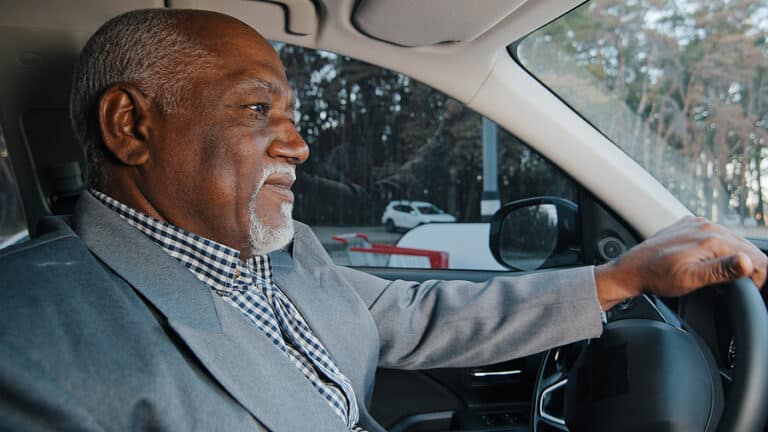Driving provides seniors with a sense of independence, but there comes a time when getting behind the wheel may no longer be safe. As reflexes slow and vision declines, seniors face greater risks on the road. Companion care at home can provide a valuable solution by offering transportation assistance and support for daily activities, allowing seniors to maintain their independence without the dangers of driving.
In fact, older adults are more prone to injuries in vehicle collisions. Seniors are more likely to experience severe injuries or even long-term effects from car accidents, even in low-speed incidents. Recognizing the signs that it’s time to stop driving can prevent accidents and help ensure the safety of your loved ones. Vibrant Home Care is here to provide the necessary support to help seniors transition safely to life without driving.
1. Frequent Close Calls or Minor Accidents
A small dent in the car or a scraped bumper may not seem serious, but these incidents can be warning signs of declining driving skills. If a senior frequently forgets to check blind spots, misjudges distances, or struggles with parking, their risk of a major accident increases.
According to the Centers for Disease Control and Prevention (CDC), fatal crash rates begin to rise at age 70 and are highest among drivers 85 and older. These statistics highlight the importance of monitoring a senior’s driving behavior and addressing concerns before a serious accident occurs.
How Companion Care at Home Helps
Caregivers can provide transportation for errands, doctor’s appointments, and social outings, ensuring seniors stay engaged in their community without the risks of driving.
2. Delayed Reaction Time and Confusion
Quick decision-making is essential on the road. If a senior struggles to respond to traffic signals, hesitates at intersections, or gets easily confused while driving, it may indicate slower reflexes or cognitive decline.
Dementia-related conditions, such as Alzheimer’s, can also make it difficult for seniors to remember familiar routes or process road signs. If a loved one has become lost while driving or is frequently disoriented behind the wheel, it’s time to consider alternative transportation options.
How Companion Care at Home Helps
Caregivers provide reminders for appointments, accompany seniors on outings, and ensure they get where they need to go safely.
3. Vision or Hearing Loss
Clear vision and hearing are necessary for safe driving. Age-related macular degeneration, glaucoma, and cataracts can make it difficult to see traffic lights, street signs, or pedestrians. Hearing impairments may prevent seniors from noticing sirens, honking horns, or approaching vehicles.
Even if a senior wears glasses or hearing aids, these conditions can still impact their ability to react quickly in traffic. Regular eye and hearing exams can help assess whether driving is still safe.
How Companion Care at Home Helps
Caregivers assist with scheduling and attending medical appointments, ensuring seniors get the necessary eye and hearing care.
4. Medications That Cause Drowsiness or Dizziness
Many seniors take medications that can affect alertness and coordination. Pain relievers, muscle relaxers, antidepressants, and sleep aids may cause drowsiness, dizziness, or slowed reaction times.
The Food and Drug Administration (FDA) warns that some prescriptions and over-the-counter medications can impair driving ability. If a senior’s medication has side effects that make them feel fatigued or unsteady, continuing to drive may be dangerous.
How Companion Care at Home Helps
Caregivers monitor medication schedules and help seniors manage side effects safely at home, reducing the temptation to drive when feeling unwell.
Vibrant Home Care: A Safe Alternative to Driving
Giving up driving can be an emotional adjustment, but it doesn’t mean losing independence. Companion care at home through Vibrant Home Care ensures seniors can still attend social activities, go shopping, and keep medical appointments—all while staying safe.
If your loved one is showing signs that it may be time to stop driving, Vibrant Home Care provides the support they need to continue living comfortably at home.








